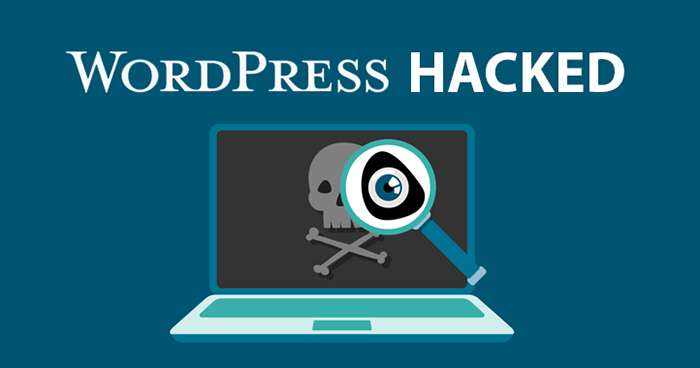In today’s digital era, websites have become the face of businesses. Websites not only provide information about services and products but also serve as a platform for online transactions. However, with the increase in the use of websites, website security has become more critical than ever before. In this article, we will explore the top reasons why website security is essential and provide practical tips to help you protect your website from potential hackers.
Reasons Why Website Security Is Important
Website security is essential because it protects sensitive information from malicious hackers. A hacked website can lead to financial losses, damage to brand reputation, and legal liabilities. With the rise in the number of cyber attacks, businesses must prioritize website security to protect their customers’ sensitive information. This includes personal data such as names, addresses, phone numbers, and payment details.
Moreover, website security is crucial for businesses to maintain their reputation. A hacked website can lead to a loss of trust among customers, which can be challenging to regain. Besides, a security breach can negatively impact search engine rankings, leading to a decrease in website traffic.
Lastly, website security is crucial for businesses to comply with legal regulations. For instance, the General Data Protection Regulation (GDPR) requires businesses to ensure the security of their customers’ data. Failure to comply with these regulations can lead to legal liabilities, fines, and damage to brand reputation.
Common Security Threats to Websites
Hackers use various techniques to exploit vulnerabilities in websites. One of the most common techniques is phishing, where hackers create fake websites or emails to lure users into providing sensitive information. Another technique is SQL injection, where hackers inject malicious code into a website’s database to gain access to sensitive information.
Moreover, hackers can exploit vulnerabilities in a website’s software, plugins, or theme. These vulnerabilities can allow hackers to gain unauthorized access to a website’s backend, leading to a security breach.
Lastly, hackers can use brute force attacks to crack passwords and gain access to a website’s backend. This is why it’s essential to use strong passwords and limit the number of login attempts to prevent brute force attacks.
Consequences of a Security Breach
A security breach can have severe consequences for businesses. The most obvious consequence is financial loss. A hacked website can lead to lost revenue due to website downtime and customer loss due to damage to brand reputation. Besides, businesses may incur expenses related to legal liabilities and fines.
Moreover, a security breach can lead to a loss of customer trust. Customers are unlikely to do business with a company that has suffered a security breach. This can lead to a long-term decrease in revenue and damage to brand reputation.
Lastly, a security breach can negatively impact search engine rankings. Search engines penalize websites that have suffered a security breach, leading to a decrease in website traffic.
How to Secure Your Website
Now that we’ve covered the reasons why website security is important and the consequences of a security breach, let’s explore how to secure your website.
Choosing a Reliable Web Hosting Provider
One of the first steps to securing your website is to choose a reliable web hosting provider. A reputable web hosting provider will offer security features such as firewalls, malware scans, and regular backups. Moreover, a reliable web hosting provider will ensure that your website is hosted on a secure server, reducing the risk of a security breach.
Implementing SSL Encryption
Another essential step to securing your website is to implement SSL encryption. SSL encryption secures the data transmitted between a website and a user’s browser. When a website has SSL encryption, users will see a padlock icon in their browser’s address bar. Moreover, websites with SSL encryption will have an HTTPS prefix instead of HTTP. Implementing SSL encryption is essential for websites that handle sensitive information such as payment details.
Regularly Updating Plugins and Software
Hackers often exploit vulnerabilities in a website’s software, plugins, or theme. Therefore, it’s crucial to regularly update these components to ensure that they are secure. Most software, plugins, and themes provide regular updates that include security patches. By updating these components regularly, you can prevent hackers from exploiting vulnerabilities.
Importance of Strong Passwords
As we mentioned earlier, hackers can use brute force attacks to crack passwords. Therefore, it’s crucial to use strong passwords to prevent brute force attacks. A strong password should be at least eight characters long and include a combination of uppercase and lowercase letters, numbers, and symbols. Moreover, you should avoid using the same password for multiple accounts.
Backup and Disaster Recovery Plan
Lastly, it’s essential to have a backup and disaster recovery plan in place. A backup and disaster recovery plan ensures that you can recover your website and data in case of a security breach or other disaster. Regularly backing up your website and data can ensure that you can restore your website quickly in case of a security breach.
Conclusion
In conclusion, website security is crucial for businesses to protect their customers’ sensitive information and maintain their reputation. A security breach can lead to financial losses, damage to brand reputation, and legal liabilities. Therefore, it’s essential to take steps to secure your website, such as choosing a reliable web hosting provider, implementing SSL encryption, regularly updating plugins and software, using strong passwords, and having a backup and disaster recovery plan in place. By following these tips, you can protect your website from potential hackers and prevent a security breach.




